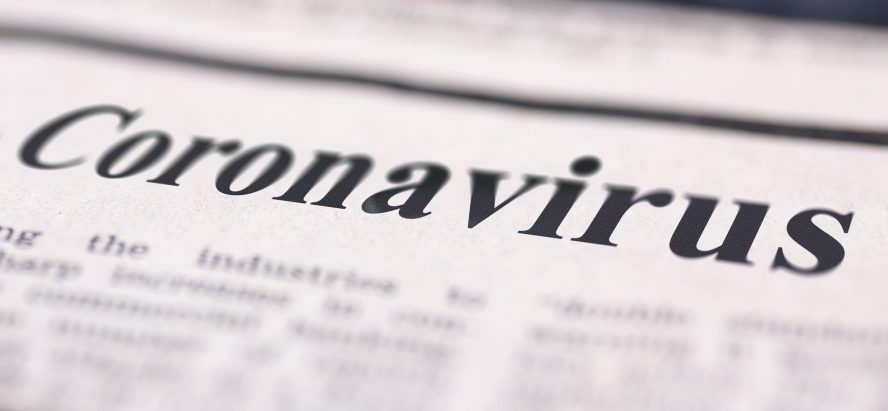ACE inhibitors, ARBs have not shown effect of these medicines on risk of becoming infected with COVID-19: EMA
EMA therefore reiterates its previous advice that patients should continue to use ACE inhibitors or ARBs as advised by their doctors
Recent observational studies of angiotensin converting enzyme (ACE) inhibitors and angiotensin receptor blockers (ARBs, also called sartans) have not shown an effect of these medicines on the risk of becoming infected with severe acute respiratory syndrome coronavirus 2 (the virus causing COVID-19) and do not indicate a negative impact on the outcome for patients with COVID-19 disease.
EMA therefore reiterates its previous advice that patients should continue to use ACE inhibitors or ARBs as advised by their doctors. Patients with questions or concerns about their treatment should consult a healthcare professional.
ACE inhibitors and ARBs are used for treating patients with high blood pressure, heart problems or kidney disease. In April 2020, media outlets and publications raised concerns about the effects of these medicines in patients with COVID-19. As part of the ongoing monitoring of the safety of medicines, 20 recently published studies on the use of ACE inhibitors and ARBs during the COVID-19 pandemic were reviewed and showed that these concerns are not supported by the latest clinical evidence.
EMA and the EU regulatory network will continue monitoring available and emerging data on the use of medicines during the ongoing COVID-19 pandemic and are working with other regulators and relevant European and international organisations to provide reliable advice on the safe use of medicines. Further information on recommendations about COVID-19 is available on EMA’s website and the websites of national competent authorities.
This public health statement has been issued by the COVID-19 EMA pandemic Task Force (COVID-ETF).
References:
- Bean D, Kraljevic Z, Searle T et al. Treatment with ACE-inhibitors is associated with less severe SARS-Covid-19 infection in a multi-site UK acute Hospital Trust. doi: 10.13140/RG.2.2.34883.14889/1.
- de Abajo F, Rodríguez-Martín S, Lerma V et al. Use of renin–angiotensin–aldosterone system inhibitors and risk of COVID-19 requiring admission to hospital: a case-population study. doi: 10.1016/S0140-6736(20)31030-8.
- Felice C, Nardin C, Di Tanna GL et al. Use of RAAS inhibitors and risk of clinical deterioration in COVID-19: results from an Italian cohort of 133 hypertensives. doi: 10.1093/ajh/hpaa096.
- Gao C, Cai Y, Zhang K et al. Association of hypertension and antihypertensive treatment with COVID-19 mortality: a retrospective observational study. doi: 10.1093/eurheartj/ehaa433.
- Gnavi R, Demaria M, Picariello, R et al. Therapy with agents acting on the renin-angiotensin system and risk of SARS-CoV-2 infection. doi: 10.1093/cid/ciaa634.
- Guo T, Fan Y, Chen M et al. Cardiovascular Implications of Fatal Outcomes of Patients With Coronavirus Disease 2019 (COVID-19). doi: 10.1001/jamacardio.2020.1017.
- Jung S-Y, Choi JC, You S-H et al. Association of renin-angiotensin-aldosterone system inhibitors with COVID-19-related outcomes in Korea: a nationwide population-based cohort study. doi: 10.1093/cid/ciaa624/5842160.
- Li J, Wang X, Chen J et al. Association of Renin-Angiotensin System Inhibitors With Severity or Risk of Death in Patients With Hypertension Hospitalized for Coronavirus Disease 2019 (COVID-19) Infection in Wuhan, China. doi: 10.1001/jamacardio.2020.1624.
- Mancia G, Rea F, Ludergnani M et al. Renin–Angiotensin–Aldosterone System Blockers and the Risk of Covid-19. doi: 10.1056/NEJMoa2006923.
- Mehra MR, Desai SS, Kuy S, et al. Cardiovascular Disease, Drug Therapy, and Mortality in Covid-19. doi: 10.1056/NEJMoa2007621. The publication of this study was subsequently retracted by the authors. doi: 10.1056/NEJMc2021225. The retraction has no impact on this public statement as the study did not influence the conclusions.
- Mehta N, Kalra A, Nowacki AS et al. Association of Use of Angiotensin-Converting Enzyme Inhibitors and Angiotensin II Receptor Blockers With Testing Positive for Coronavirus Disease 2019 (COVID-19). doi: 10.1001/jamacardio.2020.1855.
- Meng, J, Xiao G, Zhang J et al. Renin-angiotensin system inhibitors improve the clinical outcomes of COVID-19 patients with hypertension. doi: 10.1080/22221751.2020.1746200.
- Rentsch CT, Kidwai-Khan F, Tate, JP et al. Covid-19 Testing, Hospital Admission, and Intensive Care Among 2,026,227 United States Veterans Aged 54-75 Years. doi: 10.1101/2020.04.09.20059964.
- Reynolds HR, Adhikari S, Pulgarin C et al. Renin–Angiotensin–Aldosterone System Inhibitors and Risk of Covid-19. doi: 10.1056/NEJMoa2008975.
- Richardson S, Hirsch JS, Narasimhan M et al. Presenting Characteristics, Comorbidities, and Outcomes Among 5700 Patients Hospitalized With COVID-19 in the New York City Area. doi: 10.1001/jama.2020.6775.
- Rossi GP, Marino M, Formisano D et al. Characteristics and outcomes of a cohort of SARS-CoV-2 patients in the province of Reggio Emilia, Italy. doi: 10.1101/2020.04.13.20063545.
- Tedeschi S, Giannella M, Bartoletti M et al. Clinical impact of renin-angiotensin system inhibitors on in-hospital mortality of patients with hypertension hospitalized for COVID-19. doi: 10.1093/cid/ciaa492.
- Yang G, Tan Z, Zhou L et al. Angiotensin II Receptor Blockers and Angiotensin-Converting Enzyme Inhibitors Usage is Associated with Improved Inflammatory Status and Clinical Outcomes in COVID-19 Patients With Hypertension. doi: 10.1101/2020.03.31.20038935.
- Zeng Z, Sha T, Zhang Y, et al. Hypertension in patients hospitalized with COVID-19 in Wuhan, China: a single-center retrospective observational study. doi: 10.1101/2020.04.06.20054825.
- Zhang P, Zhu L, Cai J et al. Association of Inpatient Use of Angiotensin Converting Enzyme Inhibitors and Angiotensin II Receptor Blockers with Mortality Among Patients With Hypertension Hospitalized With COVID-19. doi: 10.1161/CIRCRESAHA.120.317134.
- Advertisement -


